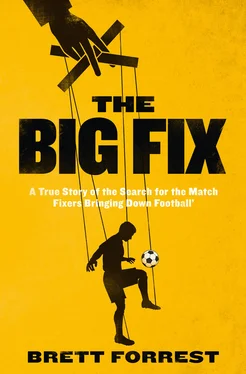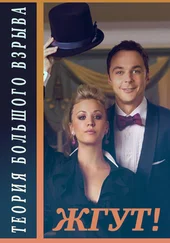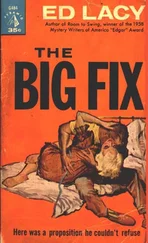Ian’s front teeth were knocked out, and his face was severely lacerated. Eaton’s daughter, Sarah, was just fine. At the door of the ambulance, parked across the M31 highway, Eaton looked on. He knew the protocol. He was a cop. He had looked the victim in the eye before, delivered the news. The victim was the last one to hope for a good outcome, and Eaton knew better than to do that now. He watched the paramedics work, and he knew. The whip of the crash had snapped Debbie’s brain stem. She was gone. “Life was to be lived for Debbie,” Eaton says. “Which was good, since she had such a short life.”
Eaton was a widower at twenty-nine, with two young children. He couldn’t handle the variable hours of shift work any longer, nor long-term investigations. He had to find stable work. This is how the man who wasn’t suited to be a bureaucrat became just that, joining Australia’s federal police union, eventually becoming its chief. He thrived in the union, learning how to operate in a political environment, though a rough-and-tumble Australian one, aided by what he had endured. “I developed a healthy cynicism as a result of the tragic parts of my life,” he says. “It made me see the realities of life for what they were.” Eaton remarried, and with his second wife, Kathie, he had twin daughters. He spent the rest of the 1980s and ’90s gaining administrative experience, an Aussie cop for life, it appeared, until an unexpected opportunity arose, expanding his policing portfolio in ways he had never imagined.
In 1999, at the age of forty-seven, Eaton broke from his established career path, challenging himself in a foreign world. He joined Interpol. Headquartered in Lyon, France, Interpol was the eyes and ears of international law enforcement, the second-largest intergovernmental organization in the world, after the United Nations. Interpol didn’t arrest suspects. It served a more critical function in the modern, globalized environment. Interpol was the one agency that could serve as a liaison between various national and local police forces, a hub of international criminal intelligence. When a suspect fled one country for another – or, worse, one continent for another – Interpol was instrumental in tracking this person and connecting the relevant policing agencies in order to apprehend him. Interpol was like an international FBI, which made sense to Eaton, from his study of J. Edgar Hoover. As international borders, especially European borders, disappeared, as technology shrank the world, Interpol’s role enlarged.
However, when Eaton arrived, Interpol was technically behind the times, and woefully so. The agency still dispatched messages to foreign branches by telex. Among various initial jobs, Eaton managed the implementation of a new communication protocol, Interpol 24/7, which replaced the telex system. He worked as the chief of staff for Interpol’s president. All the while, he attended a school of new social and professional manners. He had come from a continent unto itself. Australia in its isolation produced some of the most professional, energetic, and cooperative police officers in the world. But they had limited experience globally. They knew a little about Southeast Asia. But for Eaton, this didn’t compare to the astounding complexity of working in Europe, with its sophistication, with its fifty countries and dozens of languages, customs, and legal codes.
At Interpol, Eaton also mixed with African, Middle Eastern, Asian, and American colleagues. A great reader, he now became a great listener, coming to understand what other cultures valued, how they operated. He made quick friendships with his counterparts from Germany, Austria, Russia, Thailand. Eaton further burnished his international credentials when Interpol lent him to the United Nations’ independent inquiry committee, which was investigating the Iraqi Oil-for-Food program. Working under Paul Volcker, the former chairman of the U.S. Federal Reserve, Eaton traced the sources of Saddam Hussein’s wealth. Eaton had come a long way from the beat in St. Kilda. He was learning the skills that would transform him into a cop who could capably and imaginatively combat an international criminal conspiracy.
Eaton had come to the attention of Ron Noble, Interpol’s secretary general. A tenured professor at the New York University School of Law, Noble had served as an undersecretary at the U.S. Treasury Department before coming to Lyon. He was credited with sweeping structural reform that revitalized Interpol after the terrorist attacks of September 11, 2001. But he was frustrated. Interpol’s Command and Coordination Center was brand new, a reaction to the rising global terrorist threat. It was designed to be the room through which all of Interpol’s critical information flowed in up-to-the-minute fashion. In practice, the center was underutilized, noncritical, an underperforming asset. Noble recalled Eaton from the UN in order to fix the problem.
Noble knew that Eaton was a talented administrator. Eaton was aggressive. In pressure situations, he acted calmly, assertively, insulating his subordinates from distraction and giving them the assurance to perform. When he returned to Lyon, Eaton went about transforming the command center into the innovation that Noble had envisioned. In short order, the command center became a hive of activity. A massive screen hung on the main wall, and it displayed the status of active incidents and investigations from across the globe. Operators at individual desks communicated to international police agencies in Russian, French, Spanish, Urdu, Arabic. The world of crime and cops generated an intense, unending flow of information, which Eaton’s seventy-five charges coordinated with increasing adeptness. A serial killer on the loose in Southeast Asia, a terrorist incident in Africa, a drug suspect arrested in South America, a prison break in the Middle East. As Eaton’s daily attention switched from terrorism to organized crime to genocide, he learned the value of sharing live operational information with the people who could utilize it to put an end to the victimization of others.
When this sharing didn’t happen, Eaton grew furious, then morose. He watched in disgust as national police agencies greedily hoarded information about a Swiss pedophile who had traveled around Europe on a thirty-year killing spree. This only confirmed Eaton’s belief in the need for international cooperation. It didn’t matter who got credit for solving a crime or making a collar. All that mattered was getting it right in the end.
Within a few years, Interpol’s command center had become the single most important repository of operational data and information in all of international policing. Cops in the field contacted the command center because they believed that Interpol – through Eaton, its manager of operations – would react with the information and assistance that would make a difference in their investigations. Each day, as Eaton scanned the command center’s big screen of human frailty, he knew that he was harboring a secret frailty in his own personal life.
Eaton took some getting used to. Colleagues who met him for the first time often found him crass, direct, a little touchy. But once the heat rose in the command center, these same people discovered that there were few senior Interpol officials who were more capable, more fraternal.
Eaton displayed a striking, fundamental dedication to the job. Most people who worked at Interpol were there by appointment, on temporary assignment while still employed by national policing agencies. They were there to make professional contacts, to pad their résumés – there for an education in French wine – until their real bosses called them home. Eaton was an Interpol employee, so he had a stake. But there was something more. “Always remember what you’re doing this for,” he would routinely tell those in his charge. “What you’re trying to do is help the police officer in the field.”
Читать дальше











